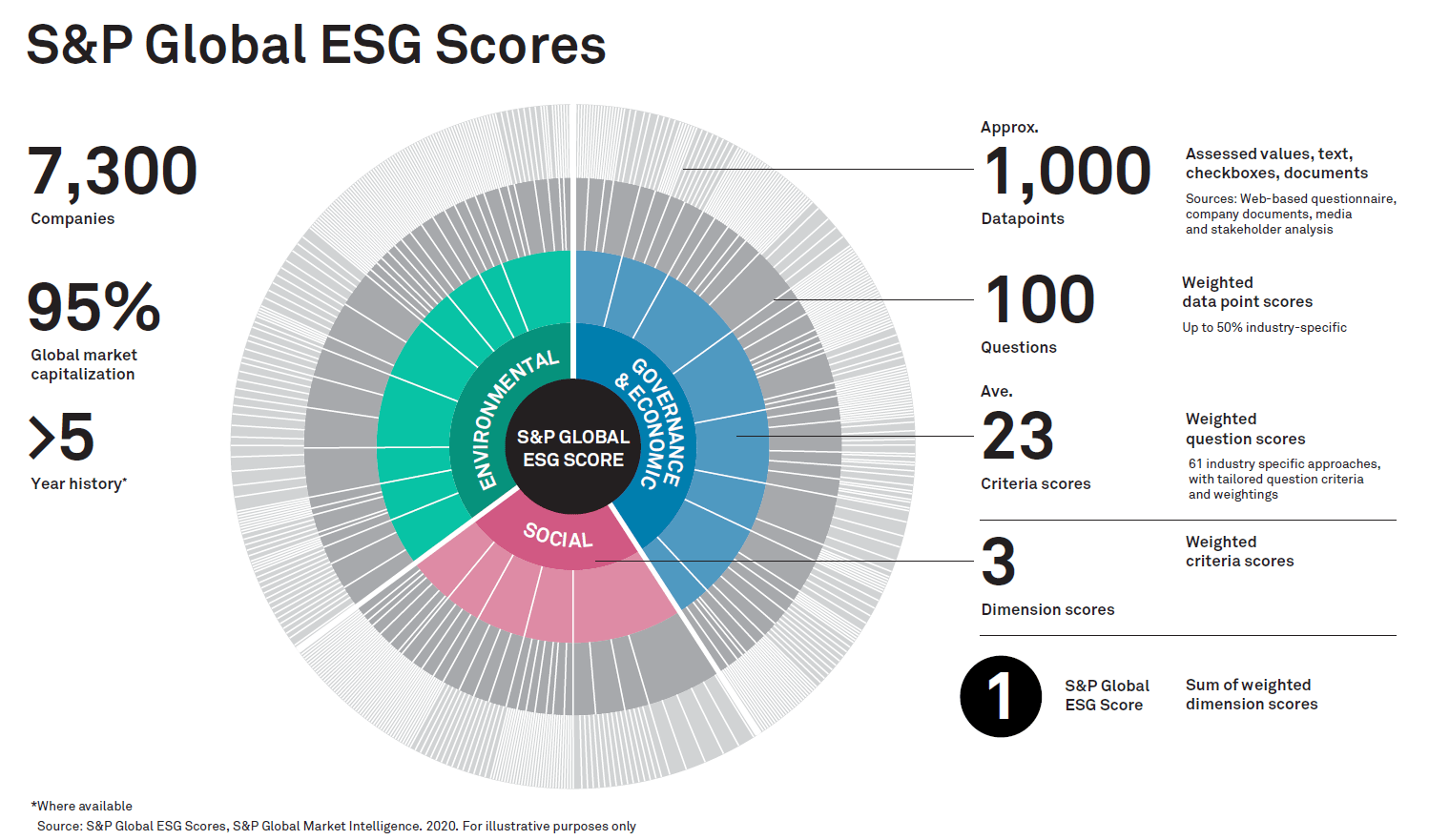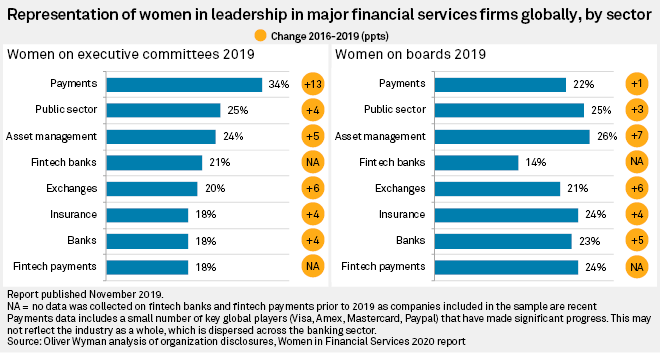Featured Topics
Featured Products
Events
S&P Global Offerings
Featured Topics
Featured Products
Events
S&P Global Offerings
Featured Topics
Featured Products
Events
S&P Global Offerings
Featured Topics
Featured Products
Events
Language
Featured Products
Ratings & Benchmarks
By Topic
Market Insights
About S&P Global
Corporate Responsibility
Culture & Engagement
Featured Products
Ratings & Benchmarks
By Topic
Market Insights
About S&P Global
Corporate Responsibility
Culture & Engagement

Environmental, social, and governance (ESG) risks and opportunities are taking on new shapes as the coronavirus pandemic continues. While companies are accounting for the material impacts of environmental risk and countries prepare to invest in sustainable energy solutions to aid in the post-crisis recovery, the additional ESG components are increasing in importance. Disruptions to daily life and the global economy are illustrating the significance of social factors, including health and safety management, communities, inclusive workforces, and customer engagement, and governance factors like structure and oversight, cores and values, transparency and reporting, and cyber risks and systems.
Published: May 4, 2020
Discover multiple layers of ESG insight with S&P Global ESG Scores, powered by the deep heritage of the SAM Corporate Sustainability Assessment (CSA).
Discover more about S&P Global ESG ScoresOn June 25, 2020, the German digital payment company Wirecard AG filed for insolvency following reports that over USD 2 billion in cash assets went missing. Wirecard’s stock has gone down 90% since the initial announcement, and the company’s lenders now face deep losses.
Key Takeaways

After markets closed on April 30, 2020, the S&P 500® ESG Index underwent its second annual rebalance since it launched in January 2019. Last year, the rebalance resulted in some changes that hit the headlines—most notably, the removal of Facebook from the sustainable version of the iconic S&P 500. With markets currently in turmoil due to the outbreak of COVID-19, interest in ESG is at an all-time high. Thus, the big question, “Who made the cut?” is perhaps more relevant now than ever before.
Aligning Investment Objectives and ESG Values
S&P DJI’s Mona Naqvi discusses how the S&P 500 ESG Index could help investors maintain their ESG values without sacrificing performance.
Watch the video
We provide essential ESG data insights that go beyond traditional financial statements to help you get ahead of emerging or underreported sustainability trends and make decisions with conviction. Our ESG solutions inform differentiated sustainability strategies built on comprehensive data sources and a sharp focus on material issues.


We understand growing and evolving needs to integrate ESG data into business strategies and investment decisions. Over the last decade, we have accelerated our expertise. We are proud to introduce S&P Global ESG Scores, leveraging the SAM Corporate Sustainability Assessment (CSA), identified as one of the “highest quality” and most "useful” ESG assessments by sustainability professionals and investors. Unlock access to our deeply informed S&P Global ESG Scores to power your investment and risk management strategies, enhance your reporting, and more.
Register for the webinar
Financial institutions with gender-diverse boards and management will be better placed to navigate the coronavirus crisis, according to experts.
But they warn that, unless banks put gender balance front and center of their crisis management strategy, the pandemic could be detrimental to the progress made by the sector.

Key Takeaways

Late last summer, nearly 200 chief executives (S&P Global’s own CEO, Doug Peterson, included) put their signatures on a new statement of the purpose of a corporation, one focused not only on shareholder value, but on value for all key stakeholders. The declaration emphasizes people—employees, customers, and communities—in which employers know they must invest to ensure long-term growth and success. This renewed focus on a company’s contributions to society as a whole is in line with the increased popularity in sustainable investing; one-quarter of all professionally managed assets now incorporate environmental, social, and governance (ESG) considerations.
Why voluntary CEO pay cuts, while largely symbolic, matter in ESG context
CEOs and management teams at dozens of companies around the world are taking voluntary pay cuts as their companies lay off workers to cope with the revenue hit from the coronavirus pandemic. Experts say cutting executive pay, while largely a symbolic gesture, could help companies manage reputational damage and enhance their ability to attract and retain workers in the long term.
Read the Full Article
With an unprecedented number of employees working from home, the coronavirus pandemic is forcing companies to think differently about network security, potentially ushering in a new wave of innovation in the space.
While most companies had already begun the process of digitizing their workflows and communications, the new normal of a widely distributed remote workforce is creating problems for companies big and small.
Key Takeaways

Amazon.com Inc. and other e-commerce retailers could face increasing labor unrest and worker backlash at their warehouses and grocery stores in the coming weeks if essential workers continue wielding their collective power to advocate for better working conditions in the wake of the coronavirus outbreak, experts said.
Worker frustration took center stage when some Amazon employees at the company's Staten Island fulfillment center in New York City walked off their jobs, calling on the retailer to close the facility for a deep-clean and pay during a closure after an associate tested positive for coronavirus. Meanwhile, shoppers who work for online grocery delivery service Instacart began walking off the job nationwide to protest for more protections such as hazard pay and safety gear for essential workers on the front lines of the outbreak.
Key Takeaways


